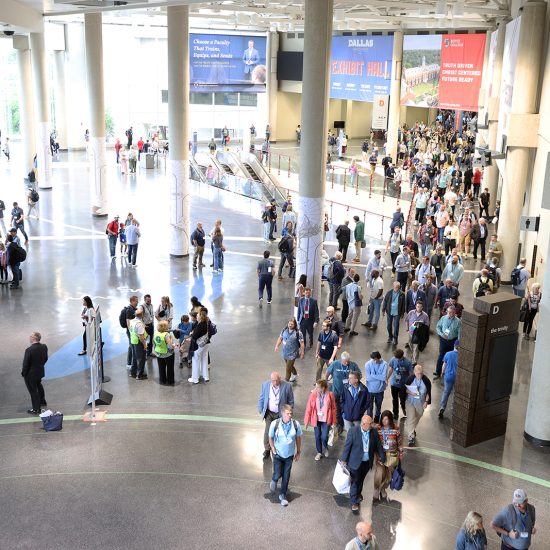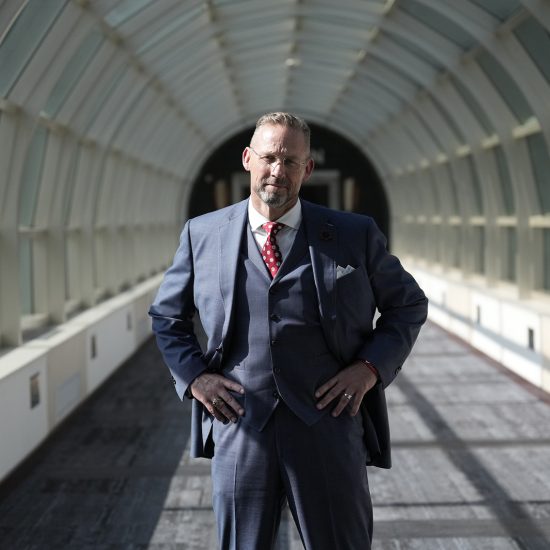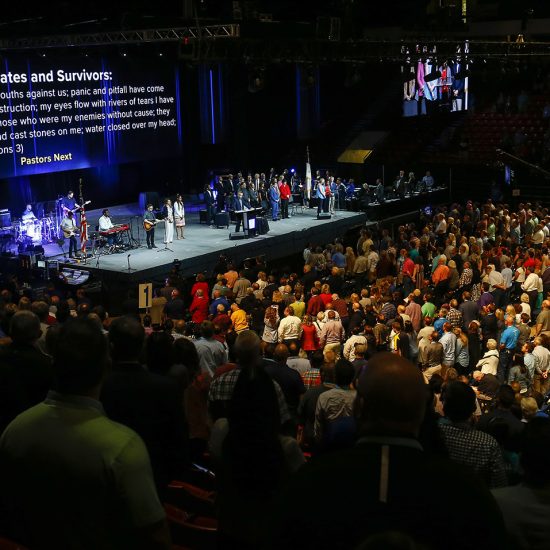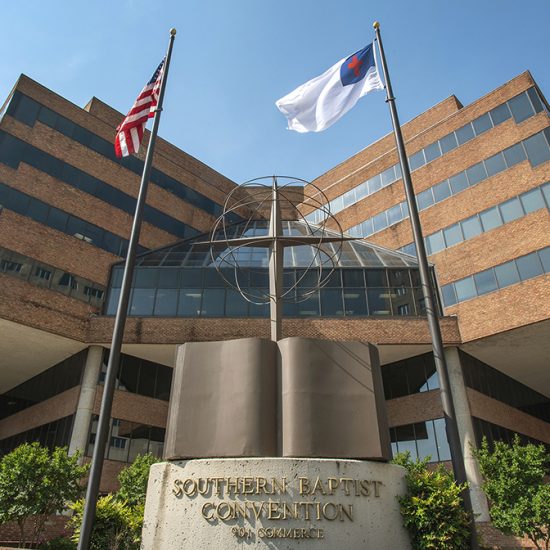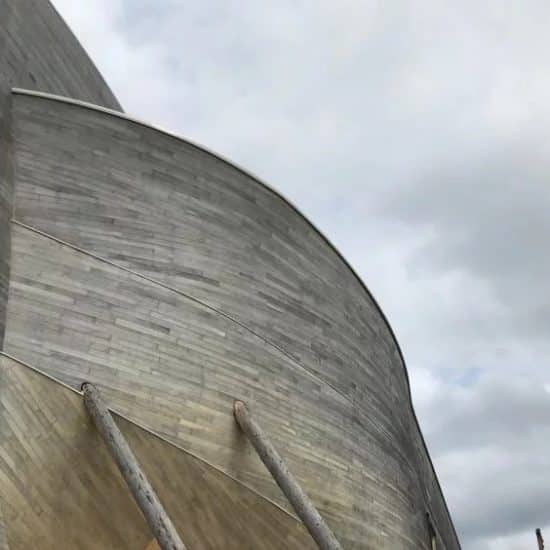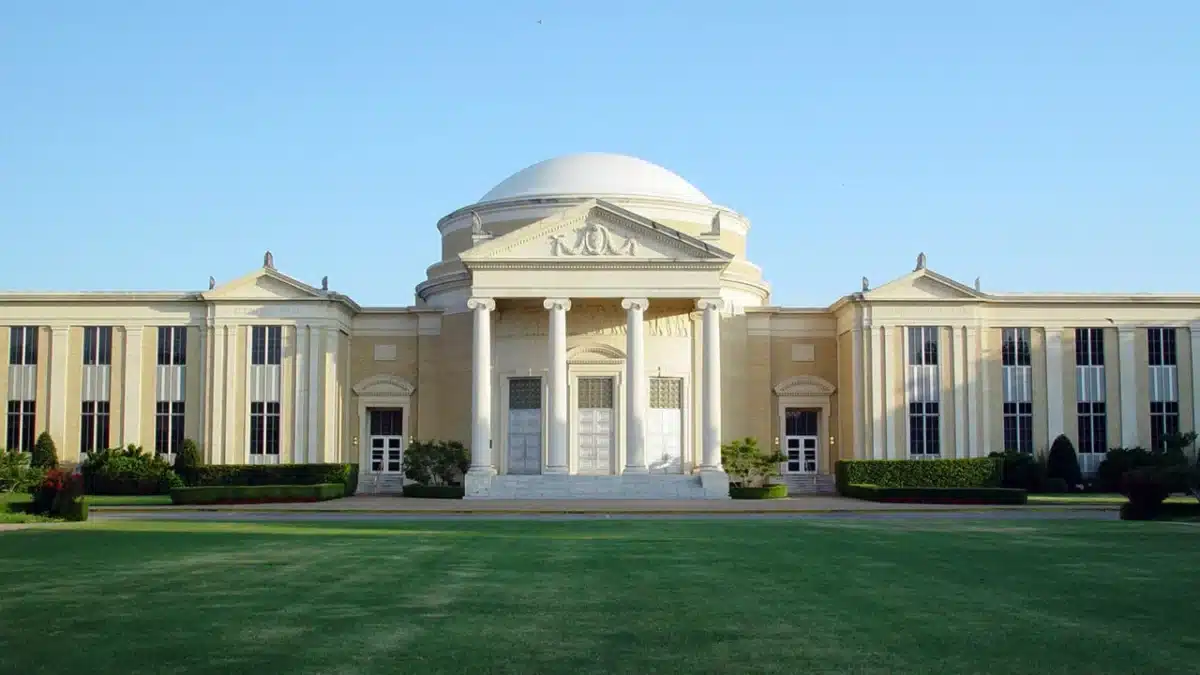
(RNS) — Aaron Sligar, the former pastor of Living River Chapel, a Baptist church in tiny Sutton, West Virginia, believes in the mission of the Southern Baptist Convention and encouraged his congregation for years to give generously to the denomination, the United States’ largest Protestant body.
“The whole thing about Southern Baptists is we are better together,” he said. “We can get more done working together.”
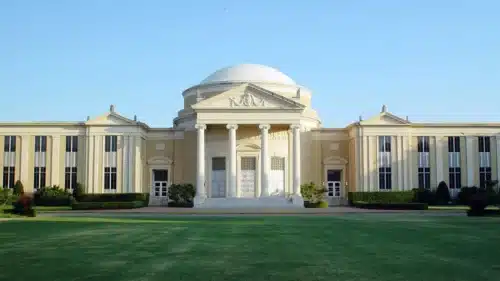
The BH Carroll Memorial Building Rotunda at Southwestern Baptist Theological Seminary in Fort Worth, Texas. Photo by Michael-David Bradford/Creative Commons
But Sligar has had a harder time in recent weeks making his case. In June, the board of trustees at Southwestern Baptist Theological Seminary, one of the SBC’s flagship schools, announced that its leaders had run up a $140 million deficit over 20 years, a pattern of financial mismanagement that has left the school’s future in jeopardy. The school’s accreditor has issued a warning, giving the seminary two years to make improvements.
Sligar, a former trustee of the seminary, said that Southwestern’s financial crisis puts the SBC’s relationships with individual churches at risk. Working together is built on trust, especially when it comes to money, said Sligar. Baptists trust that the money their pastors ask for will go to God’s work and won’t be wasted.
When things go wrong, the grandmother in the pew is going to want answers.
Right now, there are no good answers for what’s gone wrong at Southwestern. Much of the blame for the school’s trouble was laid at the feet of former President Adam Greenway, who resigned in the fall of 2022 after a task force appointed by the board of trustees criticized his spending, according to a report, “without deference to financial controls and seminary financial policies.”
The report cited $1.5 million spent on renovations and decorations for the president’s official residence on campus, including an espresso machine costing more than $11,000, some $60,000 for Christmas decorations, and more than $25,000 for artwork.
Sligar, who quit the board in June, said that Greenway deserves some blame, but not all of it. A former investigator for the Federal Bureau of Prisons, the pastor said that in allowing Greenway to resign the trustees shirked their own accountability. If Greenway was solely to blame, he asked, “Why didn’t we fire him?”
As he learned more about the school’s finances, Sligar asked for a forensic audit, a common practice during his time at the federal prison bureau. “It’s hard to reset and go forward financially if you don’t know where the money has been spent,” he said.
Sligar said his call for a forensic audit was rejected.
The task force that examined Greenway’s renovations to the president’s house initially got a proposal from an outside firm, according to the board report, but decided in 2020 “that it was unwise to expend additional resources to conduct an audit until there was reason to do so.”
Sligar, who served on the task force, said he got “volumes” of receipts for Greenway’s spending but was shut down when he asked for the details of the spending of other leaders. Without that context, Sligar argues, the board could not get the full picture of what happened.
“To be honest,” he said, “they gave me what they wanted me to have.”
He said that the budget line item for the president’s home was often used as a catch-all for renovations to other school facilities — which inflated the total amount of money used for the residence project.
Sligar was allowed to make a report about some of his findings during a trustee meeting in April. Following that meeting, he learned of additional concerns and said he tried to raise them but was again blocked from doing so.
The pastor claimed that the board’s Executive Committee tried to prevent him from raising his additional concerns with the full board — a violation, he said, of the school’s bylaws. He also claimed that the board took on powers similar to the elders of a congregation, making decisions without consulting the whole board and expecting board members to go along.
“Instead of having a full board of 40 people making informed decisions,” he said, “it was basically 10 people making the decisions and getting the other 30 to kind of affirm it.”
In its warning letter, the Southern Association of Colleges and Schools Commission on Colleges, which accredited Southwestern, said that Southwestern had failed to comply with its board governance rules. Those rules require, among other things, making sure a board is not governed by a minority of members.
Sligar and another trustee would eventually ask for a special meeting of the board to discuss their concerns, after which the trustees issued a statement rejecting any allegation that the executive committee had withheld information from the full board. The statement also accused Sligar of slanting his report to favor Greenway.
“Sligar has accused the Executive Committee of a lack of transparency and withholding information from trustees, although he removed from his report substantiated facts about the former president’s spending, which was within the scope of the report,” the board said in its statement.
Then board chairman Danny Roberts also accused Sligar of violating board confidentiality and called Sligar’s email to the board asking for the special meeting reckless, saying it was leaked.
“I condemn in the strongest possible manner the actions of any individual who has participated in spreading these baseless allegations,” he said in a statement earlier this summer. “Such behavior is ungodly and is contrary to the spirit of Southwestern Seminary.”
After the May special meeting, the board’s officers began an investigation into possible misconduct on the part of Sligar and another trustee. However, after both men resigned, that investigation was deemed unnecessary.
In acknowledging the $140 million in overspending, Southwestern’s trustees announced new financial controls and oversight of the expense reports from school leaders. They also released 20 years of audited financial statements showing a long-running pattern of financial challenges.
The new board chair told Religion News Service in an email that the trustees stand by earlier statements in response to allegations from Sligar and the other trustee.
“That the board also released 20 years of audited financials on June 7 demonstrates trustees’ desire to make clear the longstanding pattern of financial challenges at the seminary,” said Jonathan D. Richard, chairman of the board of trustees, in an emailed statement. “Financial guardrails have been and continue to be researched and put in place.”
Besides its financial woes, Southwestern may face legal challenges in the form of an ongoing Department of Justice investigation into the Southern Baptist Convention and its entities, including Southwestern, which Sligar referred to in his report. Southern Baptist officials announced last year that they were cooperating with the investigation.
The Department of Justice has yet to confirm the existence of the investigation.
Sligar in his interview with RNS reiterated that he believes Greenway was responsible for overspending, but he thinks the emphasis on seemingly grand expenditures is a distraction. The now infamous espresso machine, he pointed out, was used for donor events at the president’s residence.
The pastor said that he and his wife manage a hotel that has a café with a cappuccino machine. “You know how much our cappuccino machine cost? $11,000. And we use it because it generates revenue,” he said.
The forensic audit he advocated for would give a clearer picture of financial mismanagement. He was disappointed that no questions were asked about the school’s finances during the SBC’s annual meeting in June and that school officials offered no apologies or explanations for the state of the school at that meeting.
The trustees that run SBC entities such as Southwestern are elected by the convention, he said, and the convention should hold them accountable.
“I think every effort should be made to save Southwestern,” he said. “And I think it’s time that the messengers of the Southern Baptist Convention take an interest in what’s going on in our entities as a whole, not just Southwestern.”

